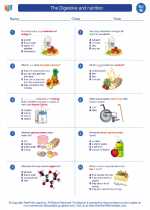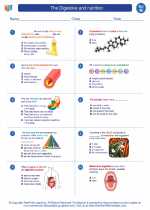Adrenal Gland
The adrenal gland is an important organ located on top of each kidney. It is made up of two main parts: the adrenal cortex and the adrenal medulla. Each part has its own distinct functions and is responsible for producing different hormones that play a vital role in the body's response to stress, metabolism, and other essential functions.
Adrenal Cortex
The adrenal cortex is the outer layer of the adrenal gland and is responsible for producing several hormones, including:
- Cortisol: This hormone helps regulate metabolism, reduce inflammation, and assist the body's response to stress.
- Aldosterone: Aldosterone helps regulate blood pressure and electrolyte balance in the body.
- Androgens: These are hormones that are important for the development of male characteristics.
Adrenal Medulla
The adrenal medulla, which is the inner part of the adrenal gland, is responsible for producing two main hormones:
- Epinephrine (Adrenaline): This hormone is released in response to stress and helps increase heart rate, blood pressure, and the flow of blood to muscles.
- Norepinephrine (Noradrenaline): Norepinephrine works with epinephrine to help the body respond to stress, increasing alertness and preparing the body for "fight or flight" responses.
Functions of the Adrenal Gland
The hormones produced by the adrenal gland play crucial roles in the body's response to stress, metabolism, blood pressure regulation, and the body's overall well-being. They help the body maintain balance and respond effectively to various internal and external stimuli.
Study Guide
To understand the adrenal gland thoroughly, it is important to focus on the following key areas:
- Structure of the adrenal gland: Understand the anatomy of the adrenal gland, including the adrenal cortex and adrenal medulla.
- Hormones produced: Learn about the hormones produced by the adrenal gland, their functions, and the impact they have on the body.
- Regulation and balance: Study how the adrenal gland helps maintain homeostasis and responds to stressors in the body.
- Clinical relevance: Explore the implications of adrenal gland disorders and the importance of maintaining a healthy adrenal function.
Understanding the adrenal gland is essential for comprehending the body's stress response, metabolism, and overall well-being. It plays a critical role in maintaining a healthy and balanced internal environment.
.◂Science Worksheets and Study Guides Eighth Grade. The Digestive System & Nutrition

 Worksheet/Answer key
Worksheet/Answer key
 Worksheet/Answer key
Worksheet/Answer key
 Worksheet/Answer key
Worksheet/Answer key
 Vocabulary/Answer key
Vocabulary/Answer key
 Vocabulary/Answer key
Vocabulary/Answer key
 Vocabulary/Answer key
Vocabulary/Answer key
 Vocabulary/Answer key
Vocabulary/Answer key
 Vocabulary/Answer key
Vocabulary/Answer key
